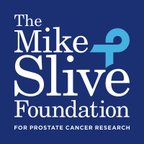By James Gallagher
Health editor, BBC News website in Chicago
A new combination of chemotherapy drugs should become the main therapy for pancreatic cancer, say UK researchers.
The disease is so hard to treat that survival rates have barely changed for decades.
But data, presented at the world’s biggest cancer conference, showed long-term survival could be increased from 16% to 29%.
The findings have been described as a “major win”, “incredibly exciting” and as offering new hope to patients.
Pancreatic cancer is one of the most deadly cancers, with patients often given just months to live after diagnosis.
It is aggressive, resists treatment and, because pancreatic tumours cause nondescript symptoms, is often found only after it has spread throughout the body.
In the UK alone, 9,400 people are diagnosed with pancreatic cancer and 8,800 die from the disease each year.
Double team
The trial on 732 patients – in hospitals in the UK, Sweden, France and Germany – compared the standard chemotherapy drug gemcitabine against a combination of gemcitabine and capecitabine.
The results, released at the American Society of Clinical Oncology’s annual conference, showed that average survival times increased from 25 to 28 months.
But there was a far more dramatic impact on long-term survival with 29% of patients alive for at least five years with combination therapy compared with 16% normally.
There was no difference in side-effects.
Prof John Neoptolemos, from the University of Liverpool, who led the study, said: “This important trial shows that this drug combination could give pancreatic patients valuable extra months and even years and so will become the new treatment for patients with this disease.
“The difference in short-term survival may seem modest but improvement in long-term survival is substantial for this cancer.
“This drug combination will become the new standard of care for patients with the disease.”
It is not entirely clear why there is the difference in survival rates, but one idea surrounds the new drug being less toxic allowing patients to tolerate higher doses.
‘Exciting’
Alex Ford, chief executive of Pancreatic Cancer UK, said: “These are incredibly exciting results from a major trial for those diagnosed with this dreadful disease.
“The outlook for pancreatic cancer has been grim. With few treatment options, survival rates have barely changed in 40 years in the UK. Currently just 5% of pancreatic cancer patients can expect to live for five years.
“At the same time, incidence is set to soar by a third to more than 12,000 people being diagnosed every year by 2030.
“The possibility of increasing survival for those who have undergone surgery for pancreatic cancer will give great hope to hundreds of patients and their families who may benefit. The importance of clinical trials to help transform the outlook for pancreatic cancer cannot be over-estimated.
“We now need to see these results quickly translate to a change in approach by clinicians so that patients start to benefit more widely straightaway.”
The study was funded by the charity Cancer Research UK.
Its chief clinician Prof Peter Johnson said: “Pancreatic cancer remains a very difficult disease to find and treat.
“Despite this, we are making steady progress, through trials like this one, where the use of better chemotherapy after surgery was able to increase the number of people surviving the disease.”
Around 340,000 people worldwide are diagnosed with pancreatic cancer each year with the highest incidence in North America and Europe.
Dr Smitha Krishnamurthi, from the American Society of Clinical Oncology, said: “Pancreatic cancer remains one of the most hard-to-treat cancers.
“It is a major win to find that adding a generic chemotherapy not only improves survival for these patients, but does so with little effect on patients’ quality of life.”
http://www.bbc.com/news/health-36444413
 What a privilege and thrill to be on hand last week for the official launch of the Mike Slive Foundation for Prostate Cancer Research. It was exciting to imagine the possibilities — for better detection, for better treatments, for cures — to combat a cancer that strikes one in seven men.
What a privilege and thrill to be on hand last week for the official launch of the Mike Slive Foundation for Prostate Cancer Research. It was exciting to imagine the possibilities — for better detection, for better treatments, for cures — to combat a cancer that strikes one in seven men. David York was a friend and a member of the Survivors CAN board. He had been diagnosed with advanced prostate cancer at age 44. At the time, reaching his 50th birthday seemed a long shot. When pressed, doctors told him he had a couple of years to live.
David York was a friend and a member of the Survivors CAN board. He had been diagnosed with advanced prostate cancer at age 44. At the time, reaching his 50th birthday seemed a long shot. When pressed, doctors told him he had a couple of years to live.





